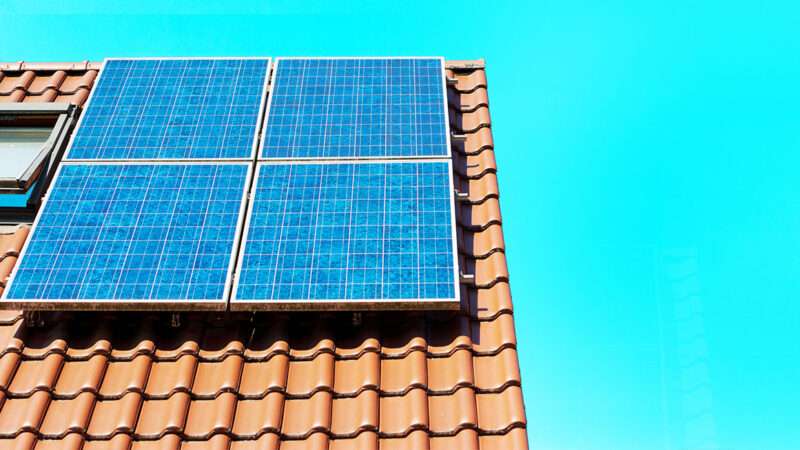
When the libertarian philosopher Robert Nozick dragged his landlord before the Cambridge Rent Control Board, Murray Rothbard, who also lived in a rent-controlled apartment and also did philosophy, argued that there is a moral difference between accepting a subsidy and agitating for one. “One is living your life within a State-created matrix, while trying to work against the system,” Rothbard wrote in a 1987 issue of Liberty. “The other is actively using the State to benefit yourself and screw your fellow man, which means initiating and abetting aggression and theft.”
Christians might call this being in the world but not of it. Rothbard called it “rationality and good sense” to take a handout you never asked for. In that spirit, I recently set out to learn what federal subsidies my wife and I might be able to collect under the High-Efficiency Electric Homes and Rebates Act, which was tucked into the Inflation Reduction Act (IRA), a 2022 law that I think is bad.
The short answer is “none.” And while it might just be the sour grapes talking, my investigation left me wondering why so many other homeowners are eligible.
As it turns out, the IRA rebate for updating our main electrical panel, which we did in October for $2,500, is income-limited. Households that earn less than 80 percent of the area’s median income are eligible for panel rebates up to $4,000; households between 80 and 150 percent of the area median income can receive a 50 percent discount. Due to our good fortune, the government won’t pay for even half of our new circuit-breaker box.
“That’s as it should be!” you might be thinking. But there is more to the story. According to Rewiring America, a clean energy advocacy group, we could have received up to $600 for the main panel job if we had an energy-efficient water heater installed in conjunction with it. We would have been eligible for a 30 percent main-panel credit if we also installed solar panels. The solar panels come with their own 30 percent tax credit.
That’s where the math gets morally funky. “Even with the new federal tax credit—and other available incentives, including state tax incentives—home solar panels are expensive,” the Pew Research Center noted in an October 2022 report. Pew found that the “average installation cost of a residential solar panel system so far this year can range from $16,870 to $23,170 after applying the federal solar tax credit.”
Those figures made me wonder about the average solar adopter. “Median solar adopter income was about $110k/year in 2021, compared to a U.S. median of about $63k/year for all households,” according to a November report from the Energy Department’s Lawrence Berkeley National Laboratory. Solar adopters tend to be middle-aged, non-Hispanic whites who primarily speak English and “work in business and finance-related occupations.” Compared to the general population, they “have higher education levels” and “live in higher-value homes.”
Some of my dearest friends are highly educated, upper-middle-class white people. They did not lobby for these subsidies, and I wouldn’t begrudge their attempts to shrink their carbon footprints. But things like my new electrical panel (to say nothing of a five-figure solar panel array) make it cheaper to power a house and make that house more valuable. It seems perverse for the government to help well-off people pay for investments that make them richer.
The same goes for the subsidies that electric vehicle owners can receive for charging stations (for cash-strapped Tesla owners, one assumes) as well as the battery storage subsidy and the geothermal energy subsidy. These are upgrades for rich people. The financial returns they offer—to say nothing of the environmental benefits—surely should be incentive enough.
Or maybe I’m just salty about being too rich for one set of subsidies and too poor for the other.
The post The Morally Funky Math of Homeowner Handouts appeared first on Reason.com.
from Latest https://ift.tt/9qC40jn
via IFTTT